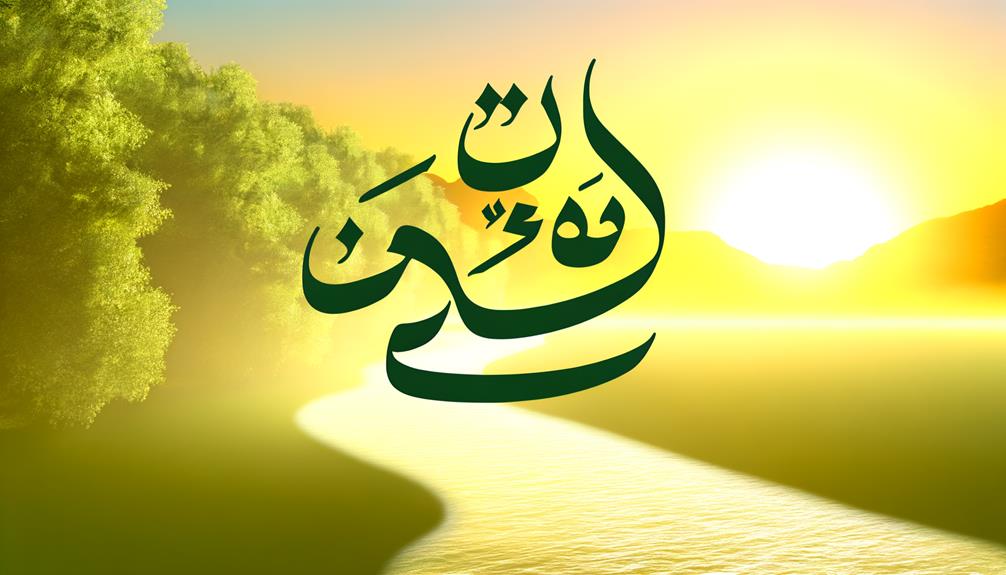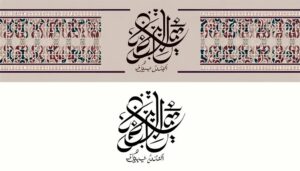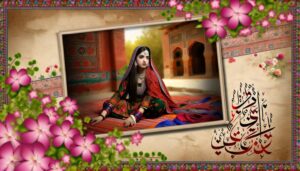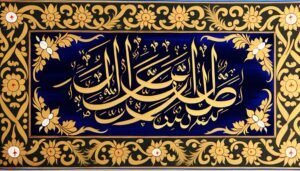Meaning of Name Mustafa in Urdu
In Urdu, the name Mustafa means 'the chosen one' and carries deep spiritual, historical, and cultural importance. Originating from Arabic, it's closely associated with Prophet Muhammad, symbolizing high esteem and divine selection.
The phonetic structure in Urdu is elegant and has a historical resonance, making it a popular name among Urdu-speaking families. Mustafa embodies qualities of purity, leadership, and a special divine purpose.
It's celebrated in Urdu literature and reflects a legacy of faith, compassion, and righteousness. Embracing this name signifies embracing these timeless values and heritage.
Discover more about its rich background and significance.

Key Takeaways
- Mustafa means 'the chosen one' in Urdu.
- It is a title given to Prophet Muhammad, symbolizing divine selection.
- Reflects spiritual leadership and high esteem.
- Commonly used in Urdu-speaking communities for its cultural and religious significance.
- Embodies qualities of purity, honor, and righteousness.
Origin and Etymology
The name Mustafa, deeply rooted in Islamic tradition, originates from Arabic and means 'the chosen one.' This name carries significant cultural and religious weight, often associated with the Prophet Muhammad. You'll find it commonly used in Muslim-majority regions, symbolizing a person of high esteem and divine selection.
Knowing its origin helps you appreciate the depth of its meaning and the respect it commands. When you hear the name Mustafa, it evokes a sense of honor and reverence, reflecting centuries of tradition and faith. Understanding this origin enriches your grasp of how names can encapsulate profound cultural values and historical significance.
It's not just a name; it's a reflection of enduring spiritual and cultural heritage.
Linguistic Breakdown
Understanding the linguistic breakdown of 'Mustafa' helps you appreciate its rich etymological roots, phonetic elegance, and profound semantic nuances.
You'll see how its Arabic origin translates and resonates in Urdu, maintaining a beautiful harmony in both languages.
Let's explore the intricate layers that make 'Mustafa' a name of significant cultural and linguistic value.
Etymological Roots
Rooted in classical Arabic, the name Mustafa means 'the chosen one' and carries profound cultural and religious significance in Islamic tradition. When you explore its etymological roots, you'll discover rich layers of history and meaning.
Mustafa derives from the Arabic root 'ṣ-f-w' (صفو), which denotes purity and selection. This root is also foundational in many other words that convey the sense of being chosen or distinguished.
Understanding the etymology entails:
- Arabic Roots: The root 'ṣ-f-w' forms the basis of Mustafa, signifying purity and selection.
- Cultural Context: The name is deeply embedded in Islamic culture, often associated with the Prophet Muhammad.
- Linguistic Precision: The name's structure reflects its profound meaning and historical depth.
Phonetic Structure
When you break down the phonetic structure of Mustafa, you uncover a name that resonates with both elegance and historical depth.
In Urdu, Mustafa is pronounced as /musˤ.tˤɑ.fɑ\u02dˤ/.
The initial 'M' sound is soft yet assertive, while the 'u' is short and rounded.
The 'sˤ' denotes a deep, emphatic S, creating a rich auditory texture.
The 'tˤ' is crisp, and the following 'a' is open and broad.
The final 'fa' concludes with a gentle, almost musical cadence.
This phonetic composition not only reflects the name's Arabic roots but also highlights its widespread use in Islamic culture.
Each sound contributes to a harmonious blend, making Mustafa a name that's phonetically pleasing and deeply meaningful.
Semantic Nuances
The name Mustafa carries profound semantic nuances in Urdu, signifying 'the chosen one' and reflecting a deep cultural and religious reverence. When you consider this name, grasping its layered meanings is crucial:
- Cultural Significance: Mustafa is a title often associated with Prophet Muhammad, symbolizing honor and respect.
- Linguistic Precision: In Urdu, the name combines roots that emphasize selection and purity, marking it as special and distinct.
- Contextual Relevance: The name's usage in literature, poetry, and daily conversation underscores its importance in South Asian Muslim communities.
Understanding these nuances helps you appreciate the rich tapestry of meanings embedded in the name Mustafa, enhancing your linguistic and cultural knowledge.
Historical Background
Understanding the historical background of the name Mustafa takes you back to early Islamic history where it was a title given to Prophet Muhammad, symbolizing 'the chosen one.'
You'll find this name frequently mentioned in classical Islamic literature, reflecting its deep cultural resonance.
Today, Mustafa holds significant cultural importance, maintaining its revered status across the Muslim world.
Early Islamic History
Delving into the historical background of the name Mustafa, you'll find its roots deeply intertwined with the early days of Islam and the Prophet Muhammad. Mustafa, meaning 'the chosen one,' is a title often attributed to Muhammad, reflecting his esteemed status in Islamic tradition. Understanding its significance requires a look into key aspects of early Islamic history:
- Revelation of Islam: Muhammad received divine revelations, forming the Quran's foundation.
- Hijra (Migration): Muhammad's migration from Mecca to Medina in 622 CE marked a pivotal moment in Islamic history.
- Battle of Badr: This first major battle in 624 CE solidified Muhammad's leadership and the Muslim community's resolve.
Mustafa in Literature
In exploring Mustafa's portrayal in literature, you'll uncover rich layers of historical and cultural significance that illuminate Islamic heritage. The name Mustafa, meaning "the chosen one," is a title for Prophet Muhammad in Islamic texts. From classical Arabic poetry to Persian epics, Mustafa symbolizes divine selection and spiritual leadership.
| Aspect | Example |
|---|---|
| Classical Arabic Poetry | Celebrates Mustafa's virtues and prophethood |
| Persian Literature | Illustrates his wisdom and guidance |
| Ottoman Chronicles | Highlights his role in state and religion |
| Sufi Mystical Texts | Emphasizes spiritual journey and devotion |
| Urdu Poetry | Reflects reverence and love for Mustafa |
Cultural Significance Today
While Mustafa's portrayal in literature has shaped its historical reverence, today the name carries cultural significance that resonates deeply within modern Islamic communities.
You'll find that Mustafa is more than just a name; it's a symbol of:
- Spiritual Connection: It reminds people of the Prophet Muhammad, emphasizing qualities like compassion and leadership.
- Cultural Identity: For many, naming a child Mustafa strengthens their connection to Islamic heritage and traditions.
- Global Unity: The name is recognized and respected across various Muslim-majority countries, fostering a sense of unity.
Religious Significance
The name Mustafa holds profound religious significance in Islam, as it's one of the titles given to the Prophet Muhammad, symbolizing 'the chosen one.' By calling him Mustafa, you acknowledge his unique status as selected by Allah to deliver His final message to humanity. This title reflects the deep respect and reverence Muslims hold for the Prophet.
When you use the name Mustafa, you're not just choosing a name; you're embracing a legacy of faith, devotion, and spiritual leadership. It serves as a constant reminder of the virtues and teachings of Prophet Muhammad, encouraging you to lead a life of piety, compassion, and righteousness.
This name encapsulates a rich tradition that has shaped Islamic culture and values.
Cultural Impact
Embracing the name Mustafa connects you deeply with a rich tapestry of cultural heritage, reflecting centuries of Islamic tradition and societal values. This name, which means 'the chosen one,' resonates profoundly in various cultural contexts. Here's how it impacts culturally:
- Historical Significance:
The name Mustafa has been borne by many significant figures in Islamic history, enhancing its cultural weight.
- Literary References:
Renowned poets and authors have celebrated Mustafa, embedding it deeply in Urdu literature.
- Cultural Identity:
Carrying the name can foster a strong sense of belonging and identity within the Muslim community.
Popularity in Urdu
Understanding the cultural impact of the name Mustafa naturally leads us to its widespread popularity in Urdu-speaking communities. You'll find Mustafa frequently chosen for newborn boys, reflecting deep religious and cultural ties. This name, meaning 'the chosen one,' resonates profoundly within Islamic contexts, honoring the Prophet Muhammad.
In Urdu literature and poetry, Mustafa often symbolizes purity and divine selection, enhancing its appeal. Families prefer Mustafa not just for its spiritual significance but also for its timeless elegance and ease of pronunciation.
Schools, mosques, and community centers often commemorate individuals named Mustafa, underscoring its esteemed status.
Modern Usage
In contemporary Urdu-speaking societies, Mustafa remains a popular choice, seamlessly blending tradition with modernity. You'll find this name thriving in various contexts:
- Education: Schools and universities often have students named Mustafa, a reflection of its enduring appeal.
- Media: The name frequently appears in Urdu literature, television, and film, showcasing cultural reverence and contemporary relevance.
- Technology: In the digital age, Mustafa is a common name seen on social media profiles and professional networks.
This name carries historical significance while maintaining a fresh appeal. Its usage spans across generations, illustrating a connection between the past and present. By choosing Mustafa, you're embracing a name rich in cultural heritage, yet perfectly suited for today's dynamic world.
Symbolic Meanings
The name Mustafa holds profound symbolic meanings in Urdu culture, often signifying qualities of leadership, honor, and chosen status.
When you hear the name Mustafa, you're reminded of someone esteemed and respected.
In Urdu, Mustafa implies a person who's selected for a special purpose, reflecting a divine choice.
This name carries a spiritual weight, often associated with the Prophet Muhammad, who holds the title 'Mustafa' in Islamic tradition.
Naming someone Mustafa isn't just a casual decision; it reflects a deep cultural reverence.
Understanding these layers of meaning helps you appreciate the name's significance and the cultural values it embodies.
Embrace the name Mustafa with the respect and honor it commands in Urdu culture.
Conclusion
In diving into the name Mustafa, you've unraveled a rich tapestry of history, religion, and culture.
This name, a beacon in Urdu, carries profound significance, resonating through centuries with its divine connotations and cultural weight.
Embrace Mustafa as more than a name; it's a symbol of chosen excellence, a linguistic gem that shines brightly in modern times.
Let this name echo in your heart, a proof of its enduring legacy and timeless charm.






